Some of the related contents of the Technological University of Parral, such as its external cooperation and student activities, do not fully introduce the key information of the school. The following is a comprehensive introduction based on information from other channels on the Internet and similar schools:
Introduction and Overview: The Technical University of Parral is located in Parral, Chihuahua, Mexico. It is a higher education institution focusing on education and research in the field of technology, and cultivates technical professionals for the local and surrounding areas. From the information on the webpage, it can be seen that the school pays attention to the practice and comprehensive quality training of students, and has carried out employment services, internship projects, graduate tracking, technical services and other activities. It also holds cultural and sports activities and offers English advanced courses to promote the all-round development of students.
History and establishment time: There is currently no exact public information on its establishment time. However, many technical universities in Mexico were established in the mid-to-late 20th century, when the country's demand for technical talents increased. The Technical University of Parral may have been established in this context to promote the development of regional technical education and meet industrial needs.
School Strength: The school's official website displays external cooperation activities, which indirectly reflects that it has established connections with the outside world to a certain extent, and may obtain resources, experience and practical opportunities through cooperation. In terms of professional teaching, the school may combine actual projects to allow students to improve their technical capabilities in practice. However, due to the lack of specific data such as faculty strength, scientific research results, and investment in teaching facilities, it is difficult to fully evaluate its school strength.
Nature of institutions: There are many public technical universities in Mexico, and there are also private institutions. If the Technical University of Parral is public, the school funding mostly comes from government grants, and the tuition is relatively low to ensure that the public can receive technical education, while shouldering the responsibility of promoting regional educational equity and economic development; if it is a private institution, the school funding depends on tuition, corporate investment or donations, and it may be more flexible in curriculum setting, enrollment and cooperation, and can quickly respond to market demand.
Educational philosophy: Judging from the activities carried out by the school, its educational philosophy focuses on the combination of theory and practice, cultivating students' ability to solve practical problems, and preparing students for the future workplace. For example, through internship projects, students can accumulate work experience, and through technical service projects, students can improve their ability to apply knowledge. In addition, holding cultural and sports activities and English advanced courses reflects that the school attaches importance to the cultivation of students' comprehensive qualities and cross-cultural communication skills.
Key laboratories and disciplines, departments: As a technical university, the disciplines may be concentrated in technical fields such as engineering, computer science, electronic technology, and mechanical manufacturing. For example, engineering disciplines cover majors such as mechanical engineering and electrical engineering, and cultivate students' design, development and maintenance capabilities in related fields; computer science disciplines may include software development, network technology and other directions. Corresponding to these disciplines, the school may have key laboratories such as engineering laboratories and computer laboratories to provide students with practice and scientific research venues. There is currently insufficient information to determine whether the school is divided into departments. If divided, engineering departments and computer science departments may be established according to subject areas.
Ranking: Currently, no information on Paral Technical University in international or domestic authoritative university rankings has been found. This may be because the school was established a short time ago and has not yet met the evaluation standards of the ranking agency in terms of academic influence, scientific research results and faculty strength; it may also be because the school focuses on regional education services and does not perform well in some indicators that the ranking focuses on.
Fees: There is no clear information on tuition and other fees for the school. Referring to public universities in Mexico, tuition fees for domestic students are usually relatively low, ranging from a few hundred to a few thousand pesos per year, and tuition fees for international students will be appropriately increased; tuition fees for private universities are relatively high, and may be in the tens of thousands of pesos per year. In addition to tuition fees, students also need to bear the cost of textbooks, accommodation, living expenses, etc. The specific costs vary depending on personal consumption habits and the cost of living in the area where the school is located.
Campus environment: There is a lack of detailed descriptions on the school's official website, but technical universities are usually equipped with teaching buildings, laboratories, libraries and other teaching facilities to meet students' learning and scientific research needs. The library will collect various technical professional books, academic journals and electronic resources; the laboratory is equipped with advanced experimental equipment for students to conduct practical operations and scientific research projects. In terms of living facilities, there may be student dormitories, canteens, supermarkets, etc. to provide students with convenient living conditions. In addition, the campus may also have sports facilities such as stadiums, gyms, and cultural activity centers to enrich students' extracurricular life.
-

National Autonomous University of Mexico
-
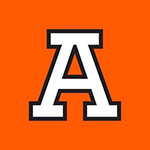
Anahuac University of North Mexico
-
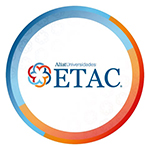
Universidad ETAC
-

Universidad Autonoma de Guadalajara
-

Meritorious Autonomous University of Puebla
-
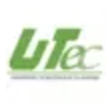
Technological University of Tulancingo
-

Technological University of Huejotzingo
-
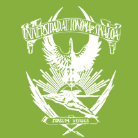
Autonomous University of Sinaloa
-
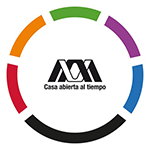
Metropolitan Autonomous University
-
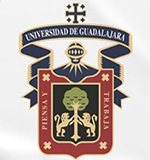
University of Guadalajara
-

Mesoamerican University
-

Istmo University
-

Mariano Galvez University of Guatemala
-

Regional University of Guatemala
-

Galileo University
-

Francisco Marroquín University
-

Rafael Landívar University
-

University of the Valley of Guatemala
-

University of San Carlos of Guatemala
-

Technological Institute of Tlaxcala Plateau
-

Golfo University
-

Technological University of South Sonora
-

Technological University of Huejotzingo
-

Tizimín Institute of Technology
-

Chilpancingo Institute of Technology

